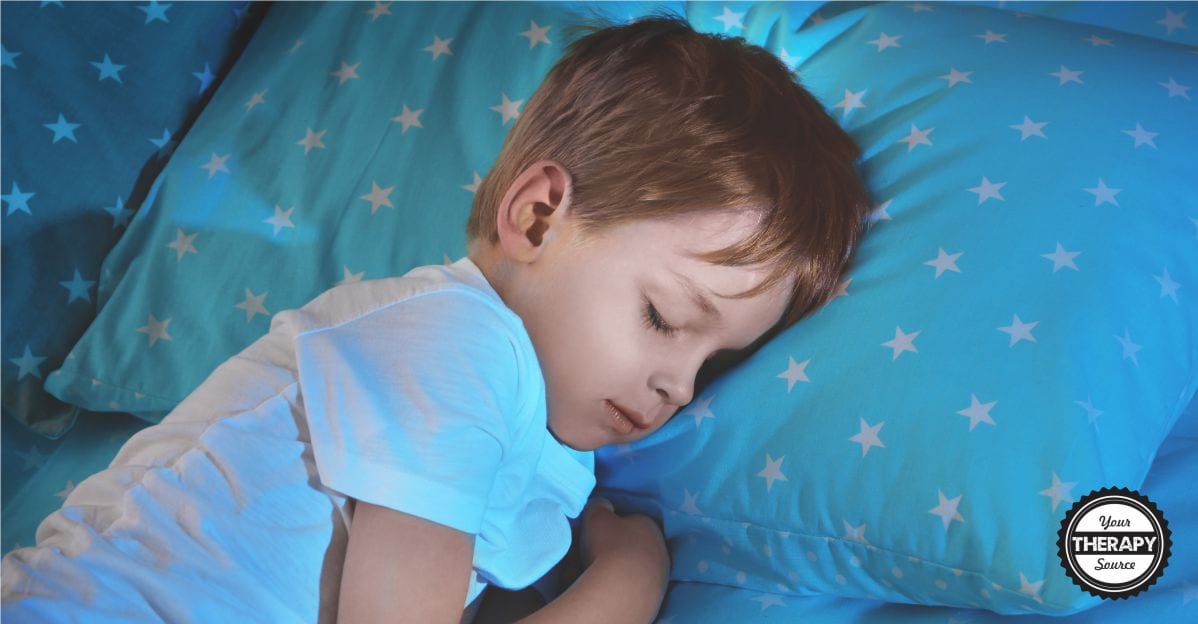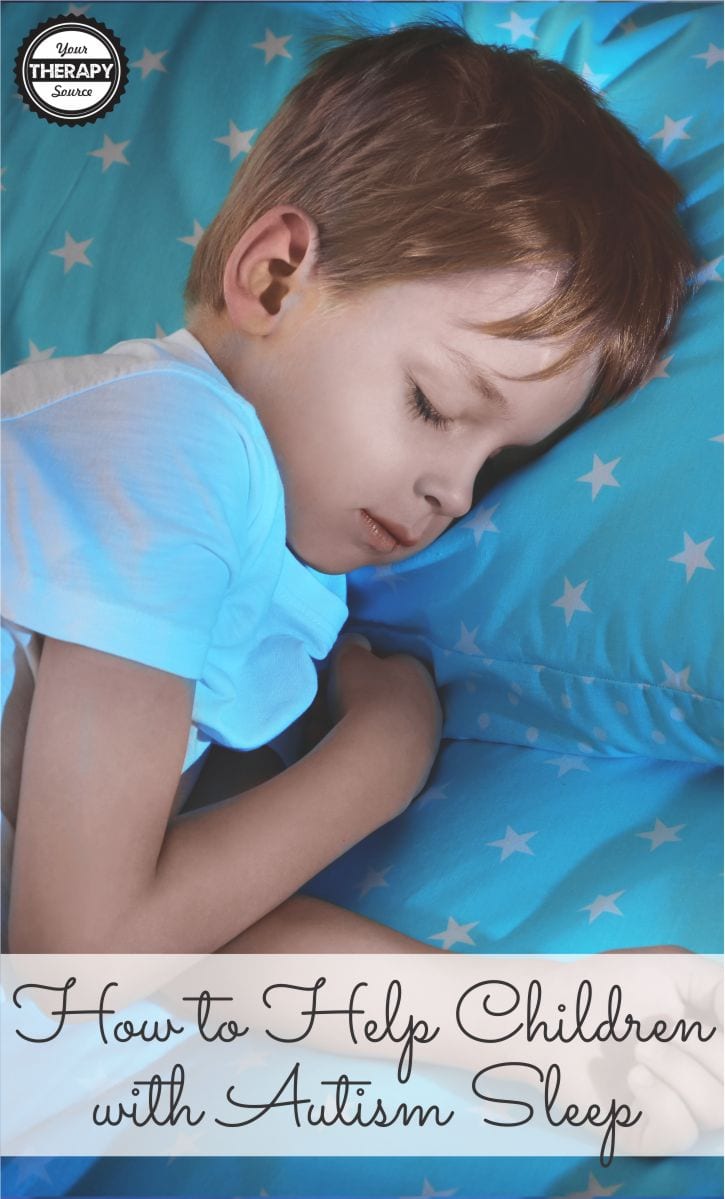How to Get Children with Autism to Sleep
Did you know that almost one half of 2- to 5-year-old children with autism spectrum disorder (ASD) or a neurodevelopmental disorder (NDD) with some autistic features have significant sleep difficulties? Parent survey results suggest that number to be much higher (more than 80%) for children with autism! Here are tips on how to get children with autism to sleep.
What the negative consequences of a lack of sleep for children with autism?
Research has shown that sleep difficulties for children with autism can have significant consequences such as:
- exacerbating the social communication deficits in ASD.
- increasing repetitive and restrictive behaviors.
- contributing to behaviors such as aggression and self-injury.
- more difficult family life.
Will Typical Suggestions Help Children with Autism to Sleep?
Children with autism and other neurodevelopmental disorders experience similar sleep problems as neurotypical children. The difference is that research indicates that children with autism may have a greater number of different kinds of common sleep problems. This means that simple interventions may not always work for all children.
How to Get Children with Autism to Sleep
Try Multiple Interventions
Since simple interventions may not always work for all children, researchers recommend trying multiple interventions for the different phases of sleep such as going to sleep, night waking or ending co-sleeping. In addition, addressing gastrointestinal or respiratory issues may have to occur at the same time. Read more on Interoceptive sensory strategies to induce sleep.
Behavioral Approaches to Sleep
Research indicates that for children with neurodevelopmental disorders, behavioral programs have been successful with suggestions such as:
- bedtime fading (start by setting the bedtime at the time the child usually falls asleep and gradually make the bedtime earlier).
- positive routines.
- teaching healthy sleep practices.
- increasing a child’s physical activity during the day.
Caregivers will need ongoing follow up to carry out these behavioral approaches.

Caregivers Need to Help Determine What Is Possible
Health care providers can educate parents on the importance of sleep. This must be done hand in hand with caregivers determining the behaviors they need to address in their children and themselves, considering they are the ones that have to carry out the techniques. If the initial strategies are not helpful, work together to try new strategies.
Melatonin or No Melatonin?
Melatonin has been shown in multiple studies to improve sleep initiation and duration for many neurotypical children. Families of children with autism or other neurodevelopmental disorders report that children who were taking melatonin continued to have significant sleep problems. The researchers recommend that families try behavioral programs before trials with melatonin.
References:
Lord, C. (2019). Taking Sleep Difficulties Seriously in Children With Neurodevelopmental Disorders and ASD. Pediatrics, 143(3), e20182629.
Wallis, Claudia. How to get children with autism to sleep. Retrieved from the web on 8/10/19 at https://www.spectrumnews.org/features/deep-dive/get-children-autism-sleep/.
Need more ideas on Helping Children with Autism Sleep?
Get more sensory strategies to help restless minds sleep in Autism Sleeps™. This is a thorough resource of sleep sensory strategies and suggestions for preparing the “sleep environment”. Sample bedtime and wake-up routines are provided as templates, especially to guide parents of children with sleep difficulties. Also includes checklists to identify which of the six sensory area(s) are impacted by poor sleep. A menu of sensory strategies in each of those affected areas is available for use in preparing a person to sleep, stay asleep and transition to wake up. Additionally, a diary and graph are available for logging the impact of the strategies implemented to determine those that are most effective in helping restless minds sleep. FIND OUT MORE.
Read more:
10 Tips to Teach Children Self Help Skills
Sleep, Bedtime Routines, Anxiety and Autism
10 Tips to Help Children with Toileting
Important Information Children Should Know
Teach Life Skills to Learn Responsibility and Independence





